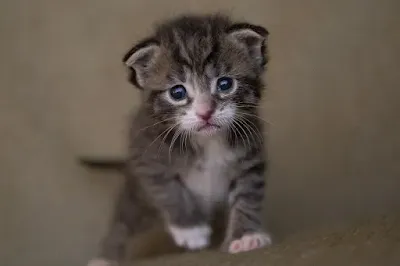Cat life stages: a comprehensive guide
Explore the different life stages of your feline companion. From the playful kitten stage to peaceful old age, understand the crucial transitions and nutritional needs for healthy, happy kittens.
Revealing the journey from childhood to old age
As cherished
companions, cats go through distinct life stages marked by changes in growth,
behavior, and nutritional requirements. To ensure your feline friend has a long
and fulfilling life, it is essential to understand these developmental stages
and provide him with personalized care throughout his journey.
Infancy - from 0 to 6 months
In the initial
stage, from birth to 6 months of age, kittens are at their most curious and
playful. This is a good time to introduce them to different environments,
including interaction with children and other pets. Crate training is also
beneficial during this period. A balanced, nutrient-rich raw primal diet is
ideal for promoting healthy eating habits in kittens from 4 weeks of age
onwards.
Young stage - from 6 months to 2 years
From 6 months to
2 years of age, kittens enter the “baby” stage, which is characterized by a
shift from playful exploration to testing boundaries. This stage includes the
beginning of sexual maturity, emphasizing the need for mental and physical
enrichment. It is recommended at this stage to stimulate toys that align with
the cat's primary instincts, preventing inappropriate play behaviors.
Basic age - from 3 to 6 years
The initial age,
which is 3 to 6 years, shows cats at their most active and healthy. While
enjoying sunlit windowsills and showing bursts of playful energy, maintaining a
healthy, well-rounded diet is crucial. Routine veterinary examinations play a
crucial role in maintaining their overall health.
Maturity stage - from 7 to 10 years
As cats age from
7 to 10 years, behavioral changes become evident, with a gradual decrease in
activity. Monitoring eating habits becomes crucial, taking into account factors
such as activity levels and weight.
Graduation years - from 11 to 14 years
As we enter the
aging years from 11 to 14 years, which is equivalent to 70 human years, regular
veterinary examinations become necessary to address age-related health
concerns. Consistent adherence to a balanced diet is essential to support
immune, circulatory, and digestive health.
Age - 15 years and above
The aging stage,
for cats 15 years and older, requires special care. Ensuring comfort with lots
of love and easy access to basics like food, water, and a litter box is crucial
during this stage.
In conclusion, adopting a cat begins a transformative journey, witnessing the remarkable transformation from a playful kitten to a calm senior. You must take care of the cat and pay attention to its behavior and health









Comments
Post a Comment